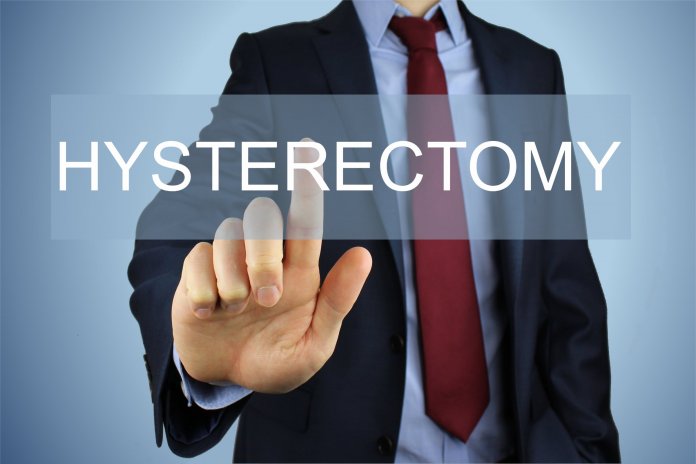If you are suggested for Hysterectomy, then what are the side effects of Hysterectomy Before and After? Hysterectomy meaning is the surgical removal of the uterus. In the US, a shocking 25 percent of all women over the age of 50 have had a hysterectomy. The operations are often performed for no good reason, such as the removal of a small fibroid.
In the UK, there has been reluctance by doctors until recently to remove the uterus unless the symptoms warranted it. However, the American attitude is beginning to creep in here.
The decision to have a hysterectomy should never be taken lightly and in young women, the instant menopause that follows a hysterectomy in which the ovaries are removed must be treated with hormone replacement therapy, (HRT) conception is never an option. Women face many other issues such as bacterial vaginosis. There are probiotics for bacterial vaginosis that are very beneficial for women.
WHAT ARE THE TYPES?
Subtotal abdominal hysterectomy – In which the uterus and sometimes the ovaries and fallopian tubes are removed, but the cervix is left intact.
Total abdominal hysterectomy – In which the ovaries fallopian tubes uterus and cervix are removed.
Radial hysterectomy – In which the uterus cervix and pelvic lymph nodes are removed through an abdominal incision.
Vaginal hysterectomy – In which a hysterectomy is performed through the vagina instead of through an abdominal incision.
If the ovaries are removed, a woman no longer produces the female sex hormones and HRT must be considered.
WHY IS IT DONE?
A hysterectomy can be done for any of the following reasons:
-
To remove cancer in the pelvic organs
-
To treat any severe and uncontrollable pelvic infection
-
To stop life-threatening uterine hemorrhage
-
In certain life-threatening conditions affecting the intestines and bladder, when it’s impossible to deal with the primary problem without the removal of the uterus.
-
To treat prolapsed
-
To treat severe endometriosis
-
In repairing uterine and vaginal, prolapsed. Hysterectomy should never be the first-line treatment for heavy long periods.
HOW IS IT DONE?
-
Under general anesthesia, an incision is made in the lower abdomen, and the uterus, and if required the ovaries and fallopian tubes, are removed.
-
After the operation, you’ll have a drip for fluids and perhaps a catheter to drain urine. Keep in mind that there’ll be a chance of some discharge from the vagina for a day or two.
-
If your ovaries were removed, HRT will soon be started. If not, ask about it.
-
On the other hand, you may have a vaginal hysterectomy, in which the abdominal cavity isn’t opened, but the uterus is removed through the vagina. Recovery is quicker this way and complications are minimized or avoided altogether. This is the ideal operation to correct uncomplicated uterine prolapse. A vaginal hysterectomy is only performed if the uterus is not too bulky and if the supporting structures are not too tight.
WHAT ABOUT AFTERWARDS?
-
When you go home after the operation, maintain a moderate level of activity, but stop the minute you feel any discomfort.
-
Gradually build up your strength. Gentle activities can be started by the fourth week after the operation moderate activity such as light shopping or housework can be undertaken by about the fifth week. By the sixth week, you should start to feel nearly back to normal, although you may still feel tired.
-
By the sixth week, you can resume sexual intercourse as the top of the vagina will have healed. If you’ve kept your cervix there is no reason why sex should be any different for you.
ARE THERE PSYCHOLOGICAL CHANGES?
Most women who are appropriately counseled and have hysterectomies are happy with the operation. The vagina will be the same size as it was before unless it was a radical hysterectomy when it will be slightly shorter. Dissatisfaction is related to whether the operation was done for a very good reason and after full consideration by the woman and her partner of the options available.
Women who wanted more children find it difficult, as do some whose ovaries are removed premenopausal. The women who suffer depression after a hysterectomy are usually those who weren’t convinced that the operation was necessary, especially if it was done for a condition that was not life-threatening. It’s easier to adjust if you know the operation saved your life.
What should I do if a hysterectomy is suggested?
Question your gynecologist very carefully about the reasons for your hysterectomy and be satisfied in your mind that it’s absolutely necessary.
Don’t make a decision quickly complications after a hysterectomy is most common in women who remain unconvinced the operation was necessary.
If you are in doubt about the advice or wish to avoid a hysterectomy, seek a second opinion from another gynecologist. Many conditions respond to much less radical approaches than hysterectomy.
Check to see whether your ovaries need to be removed as well as your uterus, and find out about hormone replacement treatments available for premature menopause, which will occur if your ovaries are removed.
It’s no longer medically accepted that the ovaries should be removed in case cancer should develop, so don’t be persuaded by this argument.







